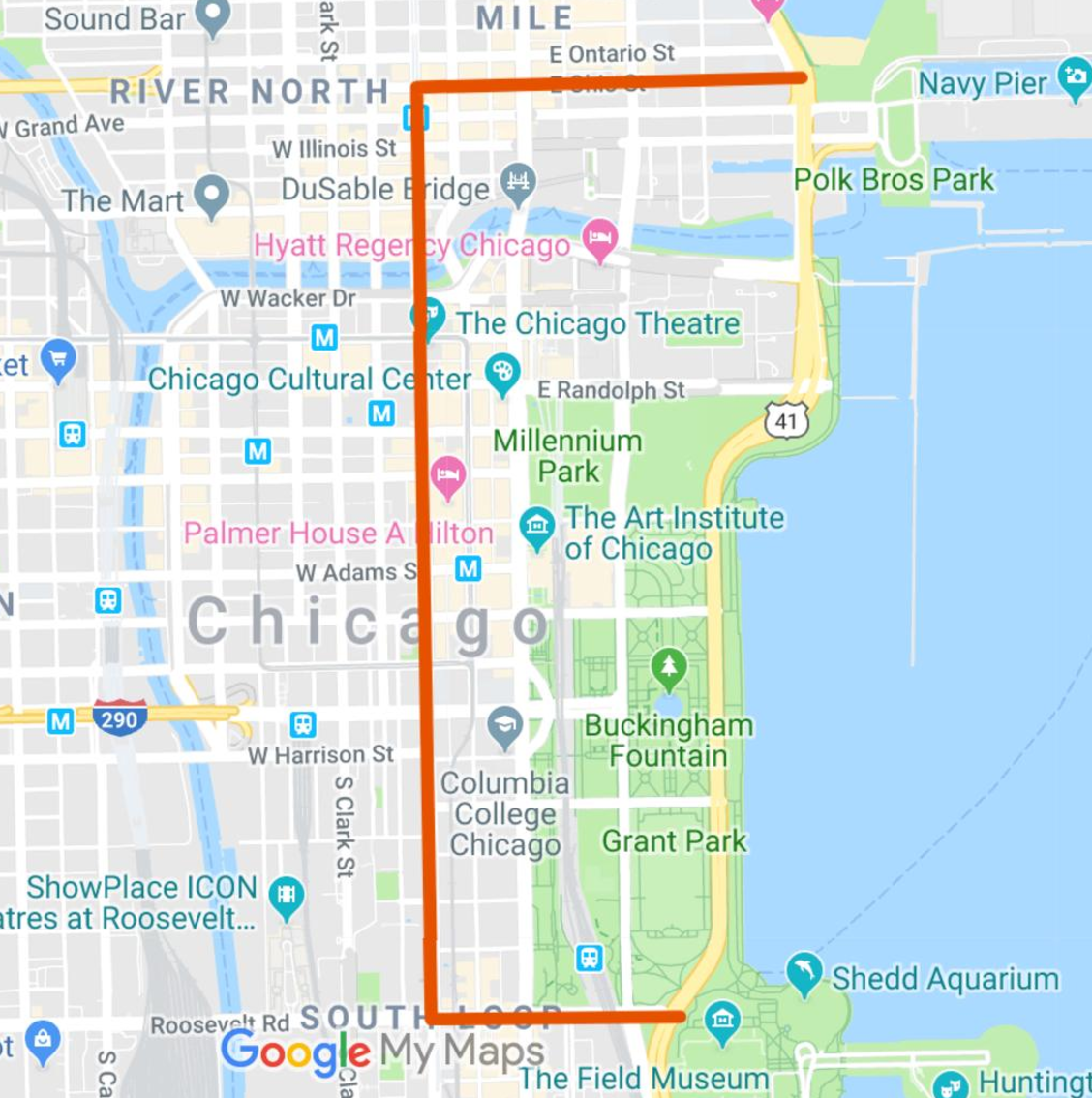On Monday the CTA sent out a rather cheekily worded press release about their additional service this Saturday, when tens thousands of revelers will flock downtown to see the river dyed green and the St. Patrick's Day parade on Columbus Drive. "Those headed out to celebrate St. Patrick’s Day this weekend are encouraged to save their money for….other things…and take advantage of CTA’s additional rail service!" the booze-friendly missive stated.
One statement from the news release that stood out was that "Ride-hailing vehicles won’t be allowed to pick up and drop off in the area bounded by State Street, Ohio and Roosevelt [and the lake]—making CTA the only way to get to the front row of the festivities." (OK, that last part isn't true, even if we're just talking about transit, since Metra and South Shore trains stop at Millennium Station, a short walk from both happenings.)
Not great for those of us who live in this area and won’t be able to get a ride
— Public Universal Sara 🐀 (@saraannb) March 13, 2019
But while the rules may be a minor inconvenience for some downtown residents, they will surely do more good than harm by preventing a massive amount of ride-share vehicles from slowing down the many bus lines on State Street and Michigan Avenue, as well as making walking and biking safer. Some people even called for a permanent downtown ride-share ban.
"[Ban ride share to ]encourage transit use and decrease congestion"
omg someone figured it out!
— Cars In Bike lanes (@carsNbikelane) March 12, 2019
According to a city official, "graying out" Lyft and Uber pickups and drop-offs in parts of the city during special events is nothing new. This strategy has been used during Lollapalooza, the Taste of Chicago, Riot Fest, and the Chicago Air and Water Show, to name a few. "We're not picking on anyone here," they said. "It's just to prevent the area from becoming gridlocked."
Lilia Chacon, spokesperson for the Department of Business Affairs and Consumer Protection, which oversees ride-share, provided more details on how the restrictions are implemented. She added that other types of for-hire rides, as well as private vehicle drivers, will be be governed by the same rules: "Keep that traffic moving, like at the airport."
"We communicate with the transportation companies to place restrictions on pickups and drop-offs by ride-shares, taxicabs, livery or pedicabs in certain parts of the city," Chacon explained. "The geofencing is an electronic fence on the ride-share app that prevents a driver from securing or delivering a ride within the geofenced area." In addition police may write tickets to any road users who violate the ban.
Chacon said that the city hasn't tried using geofencing to ban ride-share pickups and drop-offs in the busiest parts of downtown during daily rush hours. (Per an ordinance passed five years ago, pedicab operators are prohibited from operating in the Loop during rush hours, as well as Michigan and State, between Oak and Congress, at all times.) But considering the negative impact ride-share has been proven to have on transportation in U.S. cities, maybe that's something Chicago should pilot in the future.




